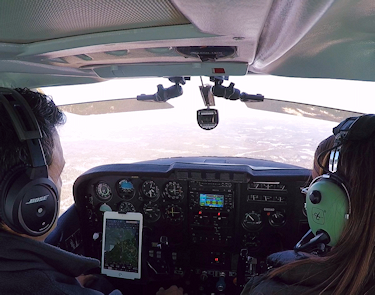Subscriber question:
"How often should IFR pilots get training to stay proficient? It seems like the IFR currency requirements and IPCs aren't enough." - Chris B.
Doug:
“You know, whether it’s the airlines or even Part 135, all those pilots have to go through recurrent training every six months – even if they’re flying approaches every day. Why shouldn’t we as general aviation pilots, who might not fly anywhere near that much or stay anywhere near that current – not go through similar training?
We know that the regulations say we have to do six approaches in six months. So maybe the way we log these six approaches is to grab a safety pilot, someone to come along with us. And we go out, Hey Joe, how would you like to come and fly safety pilot with me? And Joe says, Oh, wow! That would be far out in your new G1000 equipped Skyhawk? Gee, I’d love to do that. Of course, they don’t know anything about the G1000, nor are they an IFR rated pilot. All they need to be a safety pilot is a private pilot or better. No instrument rating required.
And what’s their function? Their function is to look out the window and make sure that you don’t run into any embedded aluminum. That’s their sole function as a safety pilot. Are they there to evaluate your IFR skills? Are they qualified to evaluate your IFR skills? The answer might very well be no to both of those questions.
So even if you go out there and you stay current, it doesn’t necessarily mean that you are proficient. If you’re really serious about your IFR flying, I highly recommend getting an IPC once every six months, even if you fly IFR once a week. It doesn’t hurt to get another opinion; to get someone else to evaluate your IFR flying and your IFR skills. Obviously, if you aren’t flying frequently, it behooves you all the more to do it.
I’ve got a client that flies frequently in IFR conditions, he does long trips, he is incredibly proficient. He does IPCs with me three times a year. I guarantee you, he is an incredibly safe pilot.”

